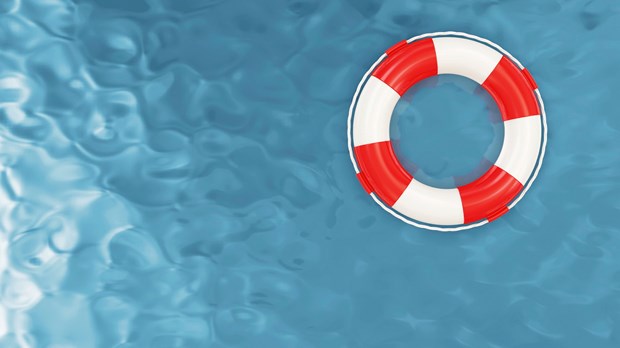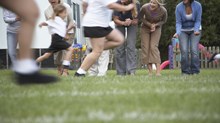
"Mom, can I help you make dinner?” Inspired by episodes of Chopped and Cutthroat Kitchen, my eldest child is often eager to “help” his dad or me prepare meals. This certainly leads to a great time in the kitchen together, but is it really help? If you consider the extra time and large mess that often results, probably not.
Similarly, when we ask our kids to help fold the clean clothes, the end result often looks more like origami than folded laundry. Was this help? Um . . . not so much.
Though I value training my kids to help out around the house, let me be honest: sometimes their “help” is the very last thing I want. It often creates more work for me as I try to straighten out the resulting mess.
My fiercely independent five-year-old daughter frequently exhibits another response to help. If I try to help her put on her shoe before she asks, she’s furious. “I can do it!” If she falls down and I try to help her up, “I can do it!” And in many situations when she clearly needs help, she’s reticent to receive it—so determined to show that she’s “a big girl” and can handle it herself.
As they so often do, in both of these help-scenarios, my kids teach me quite a bit about my own relationship with God. How often is my life like a chaotic kitchen or a disastrous laundry pile as I try to “help” God solve a problem or address a need? How often do I end up making a mess of things rather than relying on him to handle things in his power and timing?
Or how often do I refuse God’s help in the stubborn self-delusion that I can depend on my own strength? How often am I blind to my profound and absolute reliance upon him?
While God welcomes our engagement with him, he certainly doesn’t need our “help”—yet we utterly need his. In this issue of Today’s Christian Woman we explore help. How can we rely on God’s help and receive the help of others? How can we follow God’s lead by helping others in need? How can we find help when we’re faced with situations we’re not equipped to handle on our own? You can engage with these critical questions in the following articles:
- Amid the cultural deluge of self-help mantras, Ann Swindell dissects the difference between self-help and God-reliance. Need help in your own life? Dive into the dialogue in “The Lure—and the Lie—of Self-Help.”
- We live in a world full of need—poverty, hunger, disease—and one of the best ways we can help is through financial giving. But how can we make sure it actually makes a difference? In Maria Cowell’s “3 Tips for Donating to Charity,” examine how Christian nonprofits utilize donations and be equipped to make critical decisions about how you can help others most effectively.
- Is it truly compassionate to help end the life of someone who is suffering or terminally ill? In “The False ‘Help’ of Physician-Assisted Suicide,” Joni Eareckson Tada weighs in on physician-assisted suicide. Well-versed in the pain of suffering, Joni takes a compelling stand on this issue—and invites you to do the same.
- How can moms help their teenage sons navigate a world of sexual temptation? How can we parent well as our boys grow into young men and face struggles like masturbation, lust, or pornography? In “When Your Son is Tempted by Porn,” Dorothy Greco provides guidance for moms as we do our best to parent teen boys—and lean on God’s help in the process!
- Accepting help is often much tougher than offering it to others. In “The Hardest Thing to Ask For,” Vaneetha Rendall shares how physical limitations have forced her to rely on others’ help—and how doing so has shaped her faith in surprising ways.
In all these matters—from our desire to help others to our own need for help—God reminds us that he is our help. He doesn’t just provide help—he is the help we need. No matter what we face, God is, as hymn writer Isaac Watts so beautifully described,
Our help in ages past,
Our hope for years to come,
Our shelter from the stormy blast,
And our eternal home.
Grace,

Read more articles that highlight writing by Christian women at ChristianityToday.com/Women
 Read These Next
Read These Next

 Help! Who Is This Child?Feel like you have nothing in common with your child? There’s hope.
Help! Who Is This Child?Feel like you have nothing in common with your child? There’s hope. TCW's Top 10 Marriage & Parenting Articles of 2013Your top picks
TCW's Top 10 Marriage & Parenting Articles of 2013Your top picks
 Waiting for Marriage Is HardTrusting God when I struggle with singleness
Waiting for Marriage Is HardTrusting God when I struggle with singleness








 Homepage
Homepage

